UPDATE



Read more on page 4-5
Known as the ‘land of a thousand hills’, Rwanda is a rich and beautiful landscape. Yet despite the land’s potential, it is still one of the poorest countries in the world. Half of the population live on less than $2.15 a day, struggling to feed their family regular meals and send their children to school.
Over 70% of the population in Rwanda rely on agriculture for their livelihood, and they face significant challenges. Land availability is scarce, with most smallholder farmers cultivating less than 1 hectare, and the land they do have is subject to soil erosion and quality degradation.
Most smallholder farmers are only achieving 20-40% of their land’s potential productivity.
This is where we come in. In partnership with Jersey Overseas Aid, we are supporting farmers in Rwanda to increase their farms productivity and provide a secure livelihood for themselves and their family.
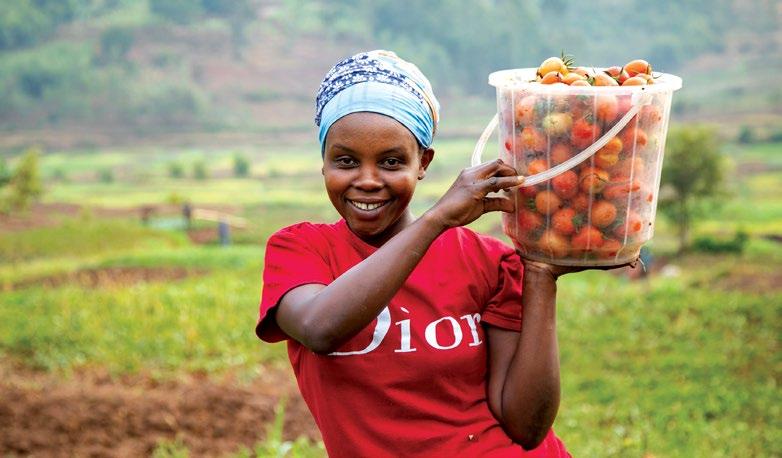
Our three-year project aims to support over 24,000 smallholder farmers, including women, young persons and those living with a disability, to work their way out of poverty.

This work is essential as it contributes to improving the livelihoods of smallholder farmers and other people in rural areas through increased agricultural productivity and income. It provides farmers with skills through relevant trainings and eased access to reasonable financial facilities.
No access to financial services –
Smallholder farmers, particularly those from marginalised groups, are among the most financially undeserved in Rwanda. Financial products are often not suitable for them and loans for inputs, such as fertiliser and good seed, are difficult to obtain.
Lack of financial and agricultural knowledge – Many smallholder farmers have little or no financial understanding, or knowledge of modern agricultural techniques. Their farms are also increasingly vulnerable to extreme weather events, due to climate change, resulting in loss or damaged crops.
Absence of market information – Most smallholder farmers have no access to market information. They do not know when the best time to sell is, who to sell to or what the market price should be. As a result, they rarely achieve the best price for their produce.
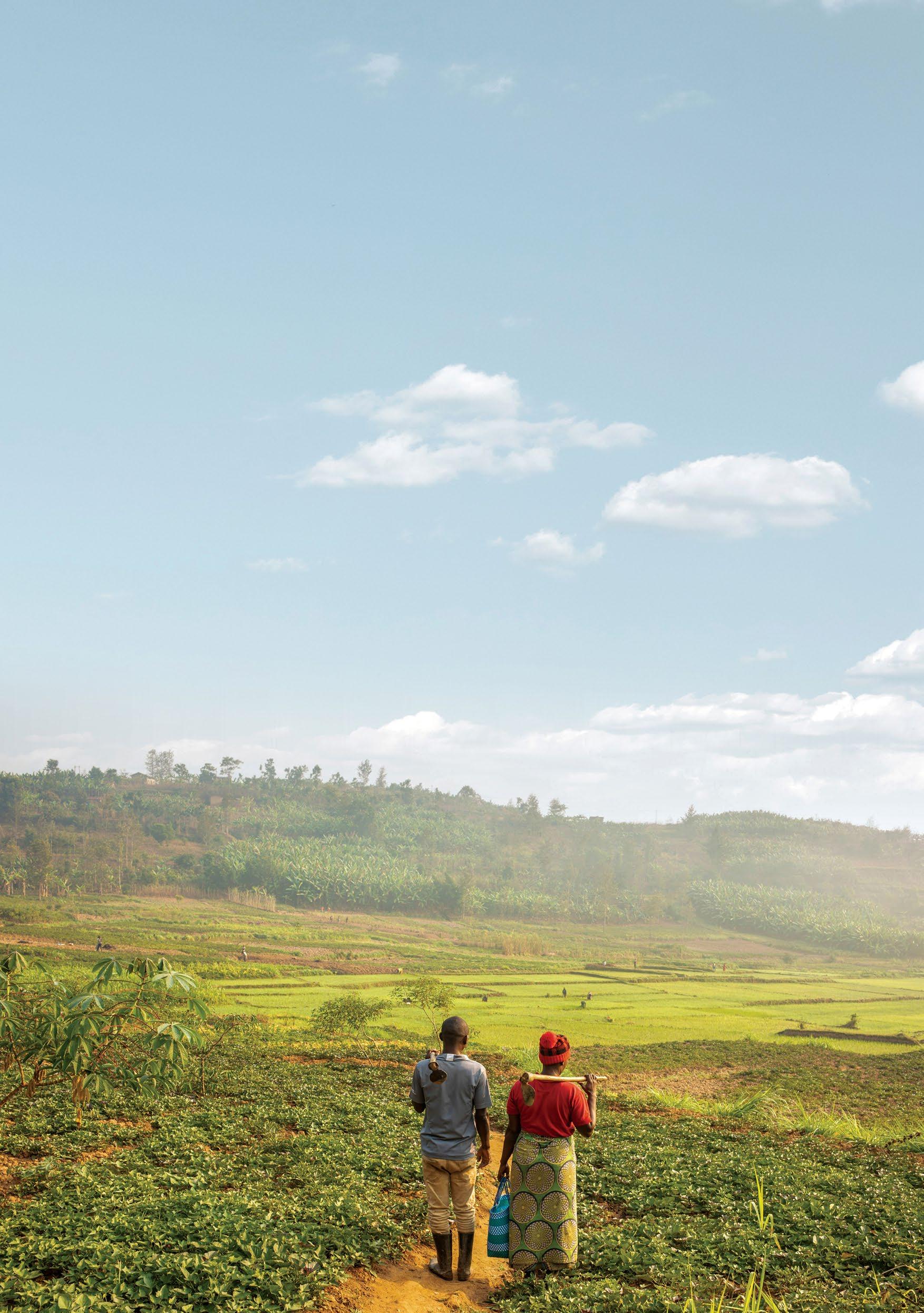
Tailored loans, savings and financial training – 12,000 farmers will access loans so they can buy inputs such as fertiliser and seed to improve their farm's productivity.
Agricultural and Financial Training –
Over 16,000 farmers will be trained to manage their money, invest wisely and save. They will also be trained in good agricultural practices to help improve their yields and build resilience against climate shocks.
Access to market information –
10,000 farmers will receive regular market information, such as crop prices. With this they can make informed decisions about when and where to sell, strengthening their business.
How

Opportunity AI
Leaf rollers on maize can be controlled by using pesticides such as fenitrothion or carbarly. In small areas with low infestation, clipping of infested leaves and destroying them may help to control the pest.
In the past we could wait for days for agriculture extension workers to come and address whatever problems we had on our farms. That is no longer the case. Just a touch of a button we have all the information we need.
MARION FARMER IN MALAWI
Smallholder farmers currently only produce about 20-40 percent of their potential yield. Agriculture needs to double productivity in grain yields and triple vegetable yields to feed the planet by 2050, so this is a critical space to make sure smallholder farmers become the best producers they can be.
TIM STRONG HEAD OF OPPORTUNITY INTERNATIONAL AGRICULTURE FINANCE
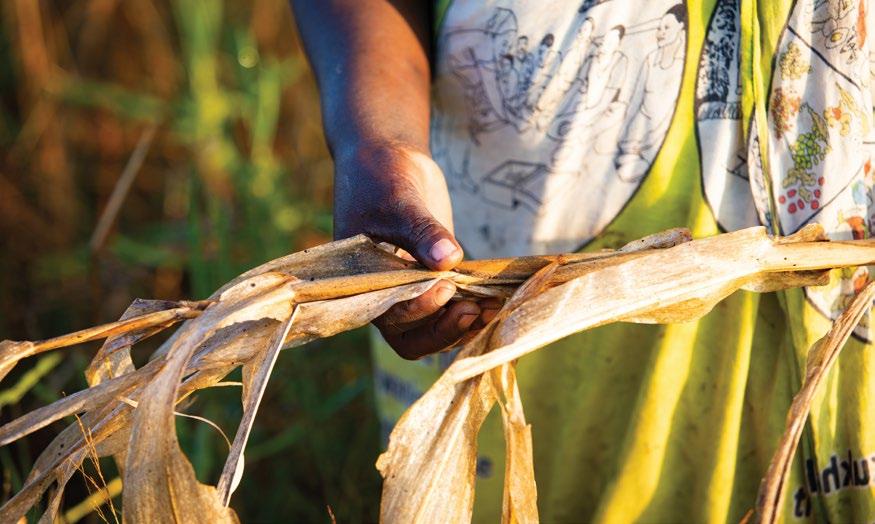
In Malawi, we are working with a small group of farmers as part of a pilot to see how Artificial Intelligence (AI) can provide quick and effective advice to farmers living in remote and poor communities.
The app is in the local Chichewa language and works on WhatsApp, using data from ChatGPT and the Malawian government’s English-language agricultural manual to answer questions or diagnose crop and farm animal diseases.
We launched the app following the devastating impact of Cyclone Freddy in early 2023. The cyclone displaced almost 100,000 people, leaving fields waterlogged and destroying many of their crops.

“We saw with Cyclone Freddy just how quickly one climate disaster can devastate an economy and a food system, and our farmer-support agents told us that the app could have helped them not only navigate the consequences of Freddy – but prepare for it,” said Greg Nelson, Opportunity International’s Global Chief Technology Officer.
Although AI is increasingly used in agriculture across many economically developed countries, its use for people living in poverty such as subsistence farmers is relatively new. In Malawi, small-scale agriculture provides 80% of the population with a livelihood. This app is supporting Malawian farmers to improve their yields, build resilience and save them time and money.
Deborah with Mayeso, a Financial Service Agent in Malawi
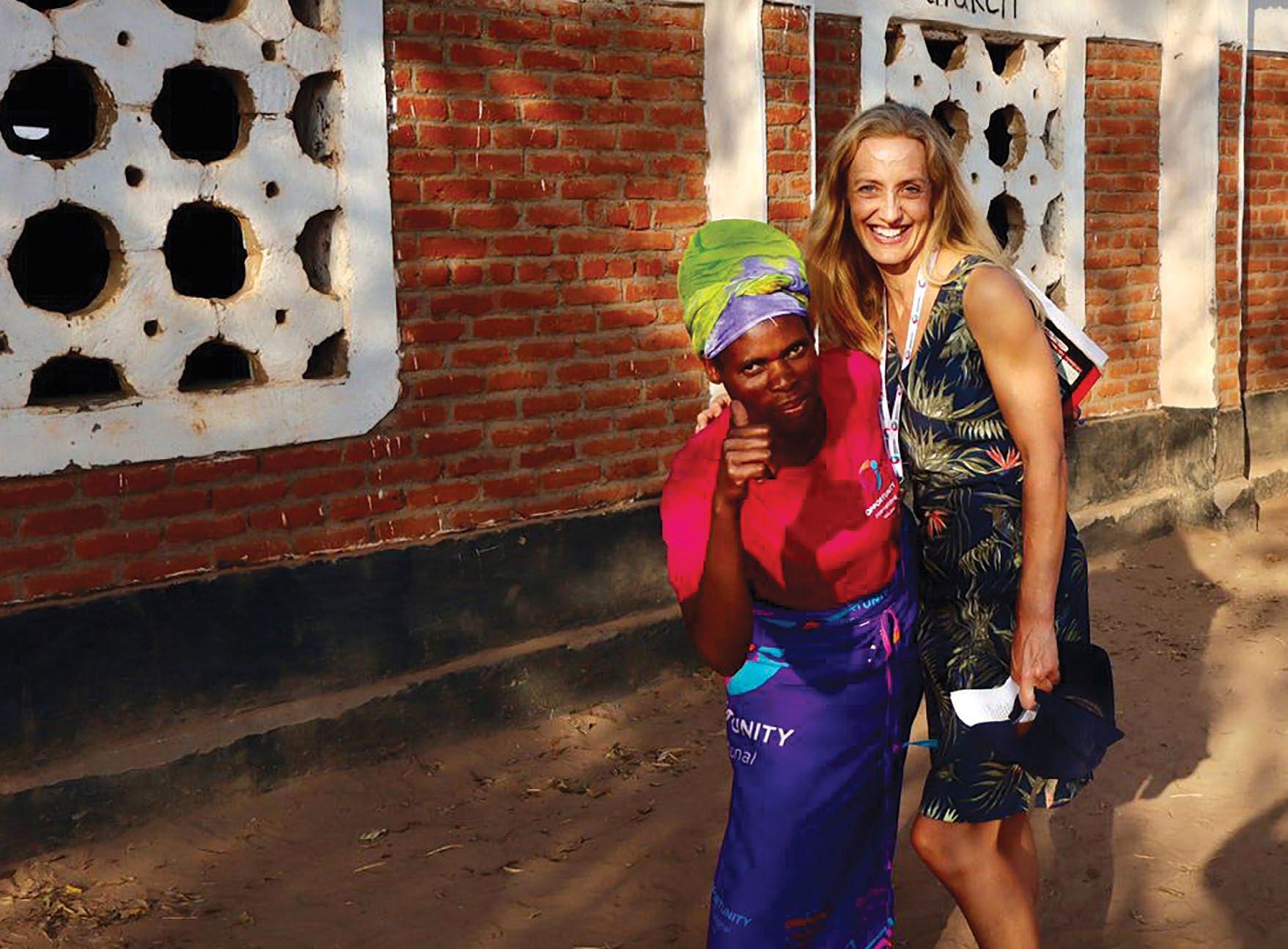
22 YEARS OF COMMITMENT TO OPPORTUNITY INTERNATIONAL
Deborah Foy has been a committed Opportunity International staff member for over 22 years. She has worked across numerous countries, continents and teams. After two decades of service, Deborah is moving on to start a new chapter, so we caught up with her to discuss her time with Opportunity, from starting as an intern in 2002 with the UK Office, to her current role as Executive Director to the Global Board.
What first attracted you to Opportunity International and kept you here for so long?
I connected to the mission – providing financial services, particularly credit, to the people who need it most. The focus on women also excited me. I love how we combine access to finance with the collaboration and solidarity of the local community to overcome challenges.
What really brought that home to me was my first trip as an intern meeting internally displaced victims of the civil war in Colombia. Typically, they found themselves in cities with nothing and trusted no one. Helping to bring neighbours together to support and learn from one another, and help each other out of poverty, was really powerful to me. That really struck me and has kept me here.
When I worked in the slums of Bogota, I met Yanill, a member of a group who had taken out a loan from Opportunity International to invest in her shoemaking business. She was in a wheelchair and her street was a steep, uneven hill. The only way she could get to the bottom of the hill to sell her shoes was to rely on people to carry her down in her wheelchair. But she found solidarity and community through her savings group. Meeting her and seeing her spirit of resilience was really inspiring. I’ve seen the value of community across Opportunity’s programmes.

Reflecting on your time at Opportunity International, what stands out about the organisation?
People say, “You’ve been with the organisation for 22 years, is it not just more of the same? Have you not got bored?” But for me, Opportunity never stands still. There have been so many challenges over the 22 years that I’ve been with the organisation, and there’s always more to do. The challenges are getting bigger, especially with climate change having such a significant impact on the lives and livelihoods of those we serve. Despite this, Opportunity continues to be able to adapt and reach those who need support most.
Opportunity will always put clients first and keep learning and changing to help those in need. And when one person is supported, whole family's and community's can be lifted out of poverty; It really is a gift that keeps on giving.
Some time ago, I found out that two women in my village donate to Opportunity. So I reached out to them and asked if I could talk to them about our work. Both openly discussed their legacies and it made me reflect on what a privilege it is for us to have the trust of a donor that they would give to us after their death. I think that trust between us, our donors and our clients is the essence of who we are as an organisation and why we’re here 50 years later.
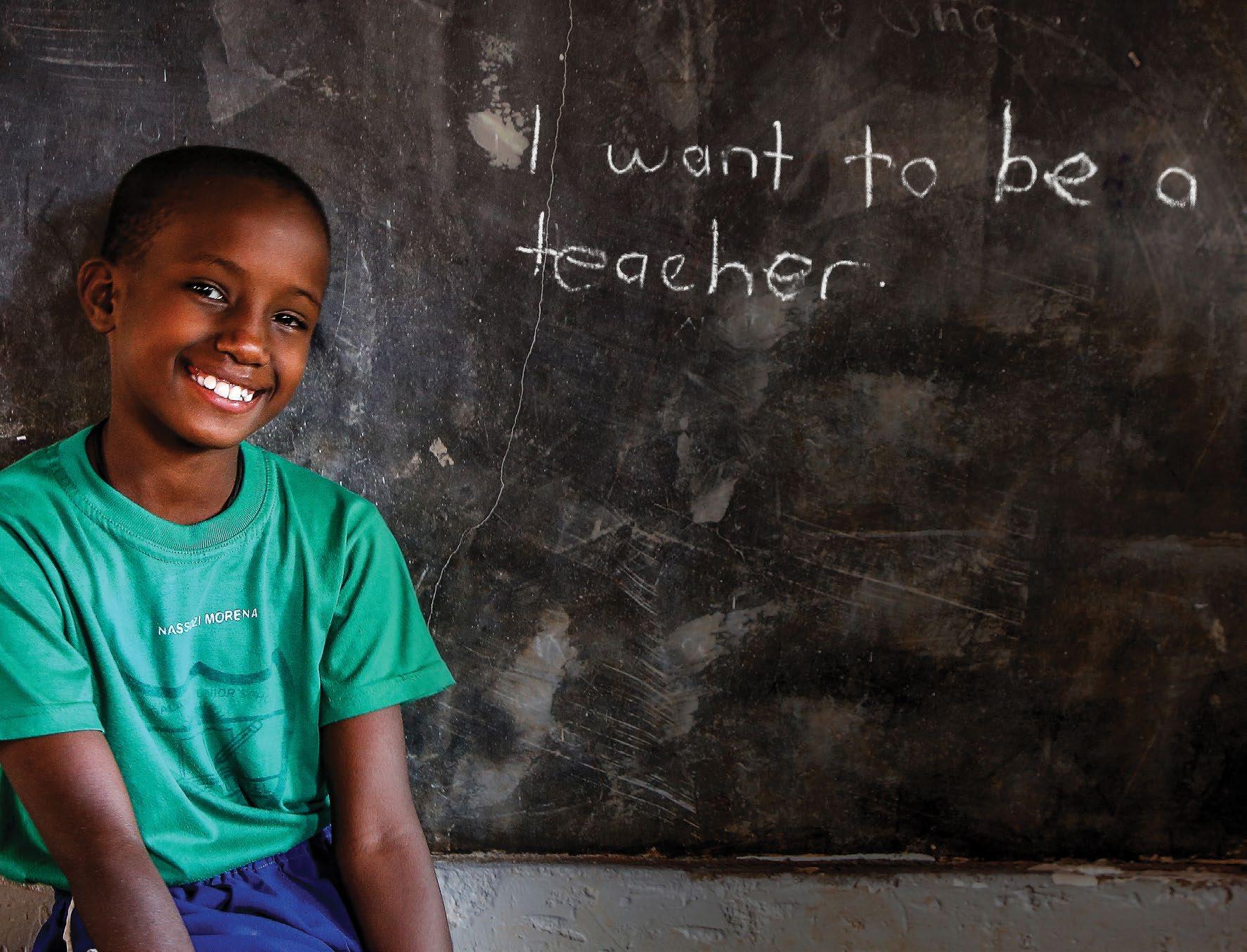
Visit opportunity.org.uk/gift_in_will